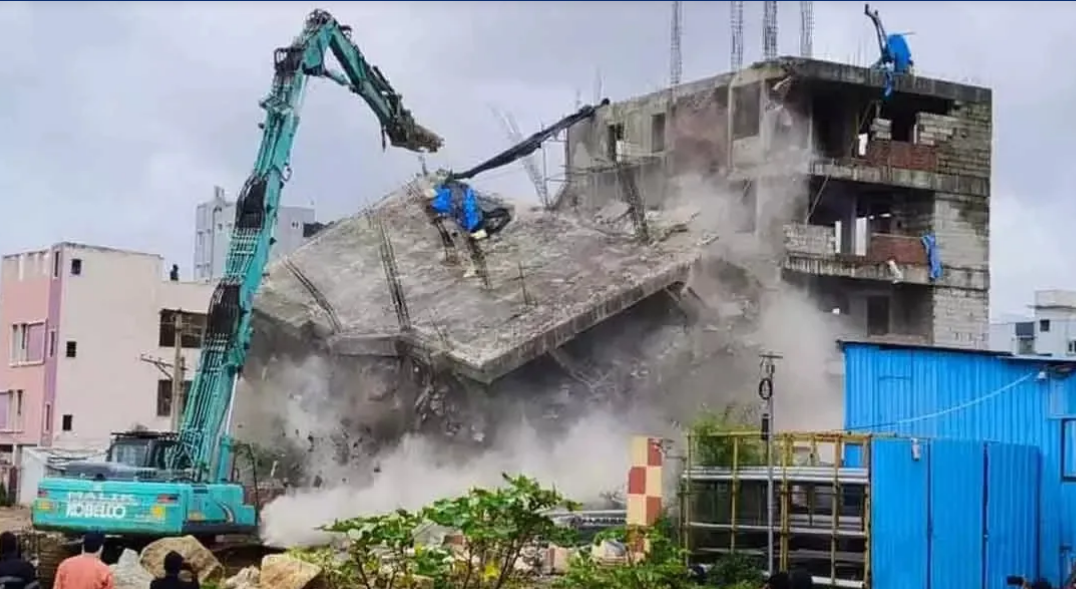HYDRAA demolishes illegal structure on parkland
In a significant move against encroachment, the Hyderabad Metropolitan Development Authority’s (HYDRAA) enforcement team demolished an illegal shed occupying parkland in Gayatri Colony, Patancheru. The park, an essential green space included in the layout since 2004, had been unlawfully taken over in 2022 by a group of real estate operators who repeatedly rebuilt structures despite resistance from residents. Following multiple complaints and counter-complaints, HYDRAA Commissioner A.V. Ranganath filed a formal complaint with the Patancheru police against four individuals—Praveen, Ravi, Mehraj Khan, and Raju—who allegedly claimed ownership of the land. Despite the demolition, residents remain apprehensive about further attempts to reclaim the space illegally.
The long-standing dispute reflects deeper civic issues concerning urban governance and enforcement. The encroachers not only defied repeated demolitions but also reportedly harassed local residents who opposed them. According to community members, the accused erected CCTV cameras to monitor activities around the park and filed retaliatory police complaints against residents who attempted to reclaim the public space. The situation escalated when association members, exhausted by legal battles and personal threats, withdrew their complaints, allowing the encroachers to persist. Such incidents highlight systemic loopholes in urban land management, where bureaucratic delays and inadequate enforcement embolden unauthorised constructions, eroding public trust in local governance.
From a sustainability perspective, preserving urban green spaces is critical for environmental and social well-being. Parks serve as vital lungs for expanding cities, improving air quality, reducing heat islands, and offering recreational space to communities. Hyderabad, like many Indian metros, is grappling with rapid urbanisation at the cost of green cover. Reports suggest that Hyderabad’s green space per capita is shrinking, making parkland preservation imperative. The increasing prevalence of land encroachment for commercial gain exacerbates this problem, calling for stronger land-use regulations and active citizen participation in urban planning. Cases like this underscore the need for long-term policies that deter illegal land occupation and ensure open spaces are protected from real estate interests.
Beyond sustainability, this case highlights broader urban planning challenges. Weak regulatory enforcement and slow administrative responses often embolden encroachers, leading to conflicts between civic authorities and residents. Hyderabad’s urban expansion must be balanced with strict monitoring of public land use. Experts suggest that integrating real-time geospatial monitoring, community vigilance networks, and stringent legal frameworks could prevent future encroachments. While HYDRAA’s intervention in this case is a positive step, residents remain cautious, fearing another round of encroachment attempts. Strengthening civic engagement and improving transparency in land records are essential steps toward sustainable urban governance, ensuring that community spaces are preserved for public use rather than private profiteering.



